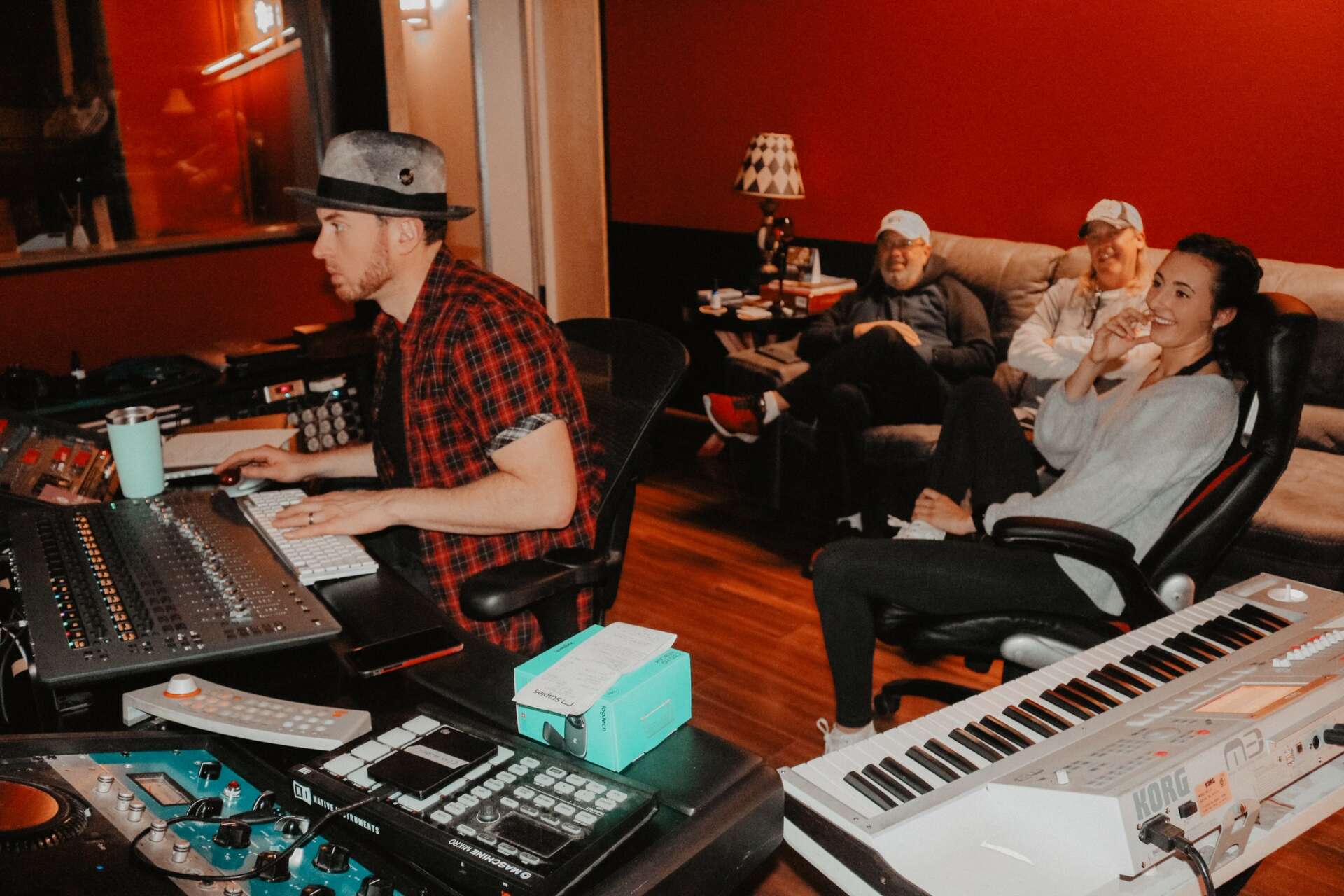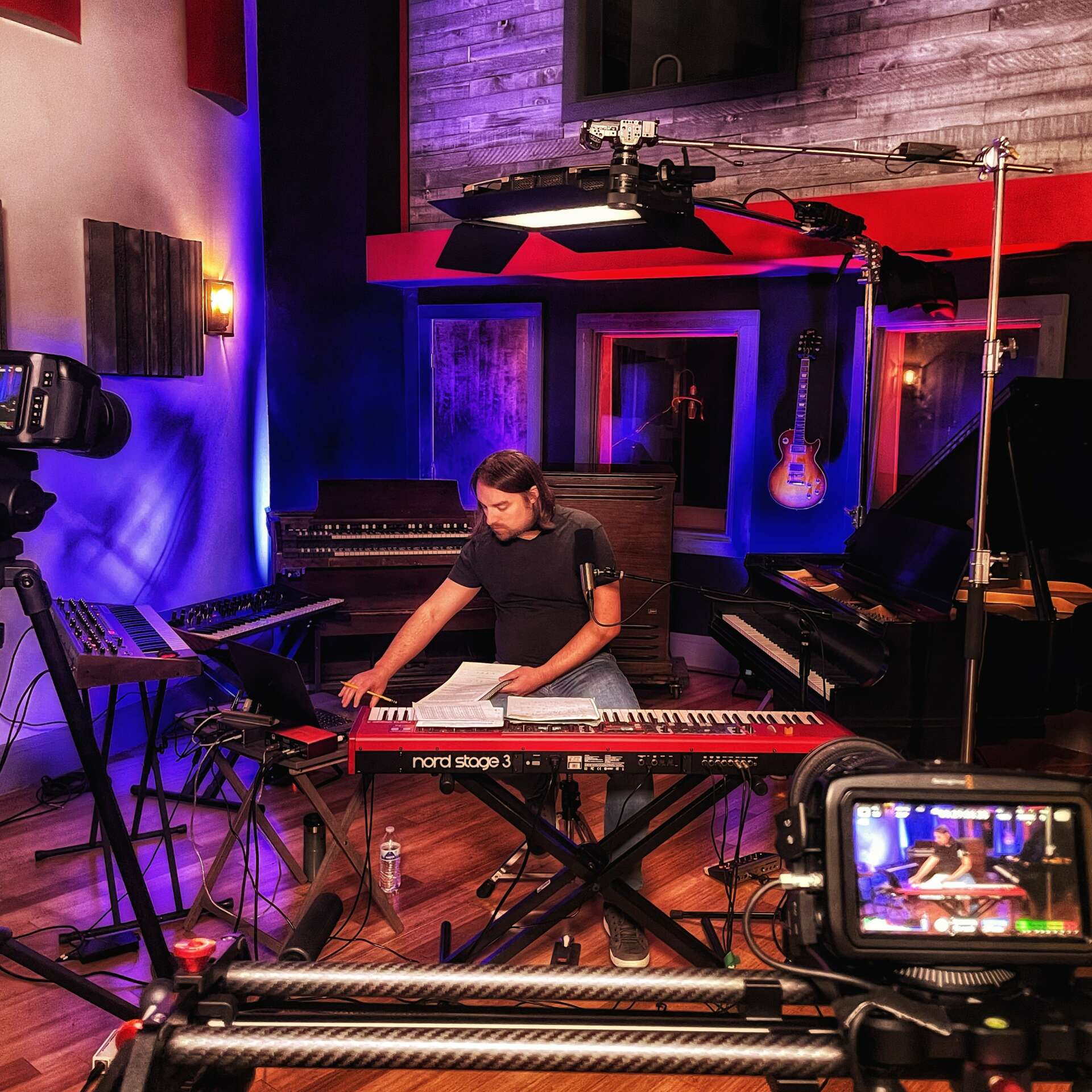Alright – so today we’ve got the honor of introducing you to Sean Giovanni. We think you’ll enjoy our conversation, we’ve shared it below.
Sean, thanks for joining us, excited to have you contributing your stories and insights. Earning a full time living from one’s creative career can be incredibly difficult. Have you been able to do so and if so, can you share some of the key parts of your journey and any important advice or lessons that might help creatives who haven’t been able to yet?
I moved to Nashville to begin my career in the recording industry after completing a degree program in Audio Engineering and Production. During my education, I was led to believe that getting your foot in the door with an entry level position as a producer/engineer, was quite similar to any other industry. I was told to look for an internship, then an entry level position, work hard and climb the ladder. What I found was an industry which had far more applicants than positions available, and the opportunities that did come up went to the more experienced professionals who had deep resume and strong industry connections. My perception of what it would take to make a full time living from my creative passion was quickly flipped on its head and left me wondering if it was even possible. Fortunately, I came to find that while the opportunities weren’t in the classifieds, they were hiding in plain site and the potential was abundant. In order to get to that realization, there were a few keys principles that I discovered that played a massive role in where I’m at today.
The first discovery that started me down this path was identifying my specialties. While I recognized that there were countless professionals who had the technical ability to do the jobs I was looking for, I thought I could win over a potential gig by working harder that the competition and showing my unconditional commitment to the craft. I led with passion, commitment, and a willingness to do anything that was asked of me. After getting turned down from dozens of interviews, I began to recognize that those traits were no more special than having the foundational knowledge to do the job. The opportunities which has the biggest impact on moving me towards a full time creative ended up coming from identifying what skills I could execute at a higher level than the average entry level engineer and then leading potential gig conversations with that as a focus. After flipping that switch, the work started coming in much more consistently. An added benefit to this was although not everyone was looking for the specific specialties I mentioned, it was very common for them to know someone who may need that type of help which began getting me connected with other potential jobs that I would never have been referred to otherwise. All that said, this was just step one. Once my reputation around my foundational specialties were solidified, I began expanding my skillsets into other areas in order to scale growth and opportunity.
Another big step was when I defined what minimum monetary figure would equal a “full time living.” I calculated my monthly living expenses and business expenses, then determined the daily income I needed to generate in order to reach full time status. Based on the average hourly rate of an entry level producer/engineer, I had a clear number imprinted in my mind of how many hours of sessions I needed to book each day in order to reach this goal. I am a firm believer in the power of manifesting outcomes, as long as there is unconditional work ethic to support the vision. Having this goal in mind was an incredible motivator when I didn’t feel like attending another networking event, cold DMing potential clients, or practicing to improve my craft. I made an agreement with myself that if had not reached my daily quota, my job was to seek any means possible to make sure I had a better shot at hitting that goal tomorrow. Once I had reached this goal consistently for several months, my focused turned to scaling those targets and that practice has continued throughout my career.



As always, we appreciate you sharing your insights and we’ve got a few more questions for you, but before we get to all of that can you take a minute to introduce yourself and give our readers some of your back background and context?
I am a sonic storyteller and owner of The Record Shop recording studio and production company in Nashville, TN. Our purpose is to help creatives achieve their artistic vision and create art that will outlast us. Our production facility is a unique creative playground for music production and multimedia content creation.
Our modern take on the studio business focuses less on “renting studio space” and more on facilitating our clients vision from conception to distribution. Our creative process always leads with the clients vision first. We provide not just a studio, but a creative team and an inspired environment to give our clients a dedicated support system.
One of the principles that I often hear mentioned about the experience of working at The Record Shop is our customized approach to every project. We take the time to identify the unique creative vision of each project and support our clients in exploring the different ways we can execute the process, resulting in the ideal balance between quality and investment.
We are always exploring new ways to serve a constantly evolving industry. We hope to be a diverse resource for our clients and want to support them far beyond the first project. We have been early adopters of live streaming, podcasts as a brand tool, social content production systems, and are always exploring new ways to put our clients on the front edge of where their fanbase is discovering art.



What do you think is the goal or mission that drives your creative journey?
When I was in “struggling artist” phase of trying to figure out how to make a career out of my passion, I was constantly seeking resources for knowledge and inspiration. I came across a book by William James which had his quote, “The best use of life is to use it for something that outlasts it” Those words were so strong that as I say it, I can see the tiny apartment I was sitting in on music row and feel the inspiration I discovered in that moment. After reading through it, I stopped before turning the page and read it again. Then again. Then I grabbed my journal and wrote it down. There was a power in those words that gave my artistic pursuit a greater meaning and infinite potential. Sometime later, I borrowed the essence of that quote while composing the mission statement for my business. It continues to be the driving force that pushes me through challenging days, long hours, and an unpredictable future.
Are there any resources you wish you knew about earlier in your creative journey?
I wish I had been introduced to the importance of having a personal financial plan earlier on in my career. Initially, I think it did make sense to have a laser focus on building a sustainable business and putting everything I could back into that business to scale. I have my parent and grandparents to thank for having a strong ability to live within my means and always save a little. I’ve been fortunate to be in a position to have a strong investment portfolio even after starting a little late. However, I could have started to build that much sooner than I did. I would tell my younger self to get educated on the market, alternative investments, real estate, crypto, and have a long term financial plan with clear goals just like I had for my business.
Contact Info:
- Website: therecordshopnashville.com
- Instagram: @therecordshopstudios
- Youtube: youtube.com/studiomusicianacademy
- Other: studiomusicianacademy.com


